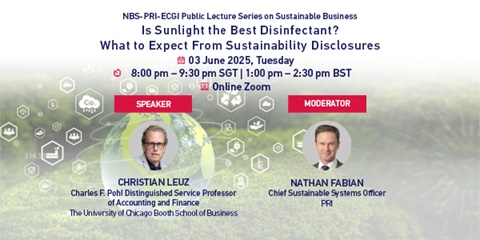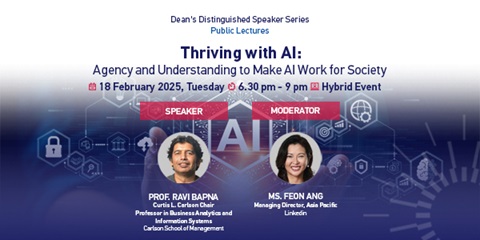The key role of the founder for startups
ELON Musk has clearly been the driving force behind SpaceX, Tesla, and more recently, Twitter. He founded SpaceX and made it a success. He took over Tesla and made it a market leader. Yet his recent actions after taking over Twitter have resulted in stock market losses for Tesla and advertisers leaving Twitter. The role of the entrepreneur in the fortunes of a startup cannot be overstated. Entrepreneurs stamp their personalities unto their startups, for both good and bad.
When investors assess the potential of a startup, they often have a checklist of several points.
It ultimately comes down to two: Firstly, is there a sound business model and plan, which these days means one that shows a path to profitability in the medium term and not the long term?
This criterion can be assessed largely by tangibles: value proposition (why should we care?) or Unique Selling Point; market size and potential; burn rate; actual and potential competitors; actual and potential revenue numbers; and investment structure and roadmap.
The second point is more intangible: Can the founder or founders execute the plan? Does the founder have the "right stuff" to bring the company forward? Ultimately, investors are taking a gamble on the founder.
In South-east Asia, the founders of tech startups have not yet led their companies to the highs seen in the US, nor, thankfully, quite the same lows.
Two lows in recent years are Henn Tan of Trek 2000 and Ankiti Bose of Zilingo -- both examples, as has been too often the case, where proper corporate governance was lacking.
Tan bought Trek 2000 in 1995, wanting to start his own company rather than work for an MNC. The company provided customised engineering solutions to businesses, before inventing the now ubiquitous thumb drive and other products, and today has around 600 patents. Tan's drive and bold leadership brought the company to the global platform, and a listing on the Singapore bourse.
However, in October 2022, Tan was found guilty of accounting fraud. The company's chief financial officer Gurcharan Singh and director Poo Teng Pin were also jailed.
Trek 2000 has stated that this matter was in Tan's "personal capacity", that its financial position "continues to be healthy", and that it had "taken decisive steps to identify the lapses in internal controls and governance systems". The company's future prospect is unclear.
Bose was a co-founder of Zilingo in 2015. In four years, the company came very close to becoming a unicorn, with a valuation of US$970 million, and Bose became a media darling.
In March 2022, Bose was suspended from Zilingo after allegations of financial misrepresentation and mismanagement. Her management style was said to involve using intimidation to extract compliance from her employees.
Under her watch, the startup apparently undertook dubious growth strategies, including a US$1 million promotional trip to Morocco, loans to suppliers, and for a time, wanting to "do a WeWork" -- focusing on "crazy growth" to catch the attention of Masayoshi Son and his fund, SoftBank.
On Jan 30, Zilingo's board confirmed that the firm would be wound up.
On the more positive side, the founder can be pivotal in changing the company's direction amid changing marketing conditions. Take the case of AirAsia. The company was bought by Tony Fernandes in 2001.
Repositioned as a low-cost carrier, the company expanded rapidly across the region. Then in 2020, its business ground to a near complete halt due to the pandemic.
Amidst speculation of bankruptcy, Fernandes took the company digital, building up new businesses, such as food and parcel deliveries, ride-hailing and digital payments. With the new direction, the company was renamed Capital A in January 2022.
While it is too soon to tell, there is now no more talk of bankruptcy, and travel has reopened.
Fernandes said at the company's renaming: "We have pivoted, we have transformed, and we have a five-year plan in place which will see non-airline revenues contributing around 50 per cent of overall group revenue by 2026. Once the airlines return to pre-Covid levels in the near future, all of our other lines of business will benefit significantly and will all soar to new heights in tandem with one another."
A company that had also seen better days is Sea Limited. Founded by Forrest Li, the company started as a gaming platform before venturing into e-commerce and fintech.
Li, a man of humble origins, imbued his company with the same ethos. His management team comprised fellow former Chinese nationals and alumni from his Stanford MBA days.
On the plus side, he was able to draw in Tencent as a key investor.
On the negative side, this perception of Chinese-ness, despite Sea being a US-listed company headquartered in Singapore, saw the company banned from India, alongside other Chinese apps.
At end-2021, Sea reached its peak of US$190.59 billion market capitalisation. Li and team might have seen the coming tech crunch in 2022, and built a huge war chest of US$7.3 billion.
This, plus quick action by the management team, has seen the company cut costs, lay off 10 per cent of its staff, and refocus on profitability rather than growth, making it likely that Li will steer Sea towards a brighter future.
Today's world has not quite seen war -- the wars in Iraq, Afghanistan, Ukraine, and civil wars notwithstanding. Today's heroes aren't politicians or generals. Today's heroes are media personalities and, rightfully so, entrepreneurs.
It is the entrepreneur who creates wealth, value and jobs, and sometimes changes the world.
But as cases like Elizabeth Holmes, Adam Neumann and Sam Bankman-Fried have shown, investors and society as a whole need to also be careful of whom we hold up as heroes.
Foo Maw Der is professor of entrepreneurship at Nanyang Technological University's Nanyang Business School (NBS) and director of Nanyang Technopreneurship Centre (NTC); Xia Zhiqiang directs the technopreneurship and innovation programme, and entrepreneurship major and minor at NTC; and Ronald Hee is a research fellow at NBS and NTC.
Source : The Business Times



.tmb-listing.jpg?Culture=en&sfvrsn=8b2cb369_1)


